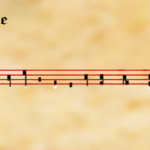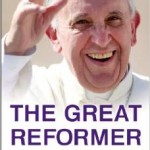We’re still getting to know Pope Francis. To me he seems like the embodiment of Catholic universality, in that his words are thoughtful, reasoned and never kneejerk. Like his predecessor, Benedict XVI, he appears to be willing to discuss any idea, explore any topic because he knows that open dialogue and the ability to wonder about things allow reason to be fully deployed. And, again, like his predecessor, that indicates that Pope Francis is perfectly confident that such reasoning will always come down, finally, on the side of Catholic orthodoxy.
It is Francis’ misfortune to be pope at a time when people are relentlessly looking for clues and buzzwords to help them quickly label someone in order to then presume — in kneejerk fashion — that they have a handle on all of the subject’s thoughts and propensities, and can therefore ride their assumptions about that person, to all of their usual conclusions. As Tony Rossi and I discussed here, Kierkegaard had it right: “when you label me, you negate me.”
But Pope Francis is not going to be negated, and frankly, I think a pope who is willing to frequently mention “the devil” in our oh-so-carefully-nuanced age is going to take some getting used to — we first-worlders are not accustomed to hearing about Old Scratch in an unvarnished manner. And just yesterday, Francis dared to talk about the Second Coming and the End of Time which is almost the third-rail of modern theological discourse. He said:
Dear brothers and sisters, good morning!
In the Creed we profess that Jesus “will come again in glory to judge the living and the dead.” Human history begins with the creation of man and woman in the image and likeness of God and ends with the final judgment of Christ. Often these two poles of history are forgotten, and, above all, faith in the return of Christ and the last judgment sometimes is not so clear and steadfast in the hearts of Christians. Jesus, during his public life, often focused on the reality of his last coming.
You can bet lots of eyes opened nice and wide as they read that. Francis is clearly his own man and he is going to tell us what we need to hear in plain language so no one can later say they couldn’t understand the message; likewise, he’s going to put modern social questions through the wringer of Catholic reason and dry them out, whether some like the way they later hang, or not, so I think a wait-and-see attitude is probably the best one to take.
Yesterday, we noted that some “progressives” were not happy with Francis and the correction of the LCWR. Then, this morning, some “rad-trads” were hyperventilating about a theoretical discussion on married priests and female deacons.
The upcoming issue of OSV’s weekly paper is taking a look at Francis’ first six weeks as pope and this question about whether Francis is an agent of continuity or of change (or, some seem to worry, of chaos!) keeps coming up, so I look at that phenomenon here:
When he decided to celebrate Holy Thursday’s Mass of the Last Supper at a detention center, where he would wash the feet of young inmates, including women and Muslims, many traditionalists could see only rubrics being cast aside and a dilution of Christ’s meaning in washing the feet of the apostles. If online forums are any indicator, the pope’s move was similarly understood by both the “progressives” and the “rad-trads,” but received by the latter with tears and the former with cheers.
In those same discussion groups, more “middling” Catholics — those who do not count themselves as “traditional” or “progressive” — believed their passionate brethren were reading more into the pope’s style and ministrations than was fair, given the newness of his papacy. “Let Francis be Francis” they counseled, some joking that the Holy Spirit may have sent us a pope so level he would “annoy everyone in turn.”
That joke proved prescient mere weeks later, when it was reported that Francis reaffirmed the 2012 assessment and program of reform laid out regarding the controversial Leadership Council of Women Religious, an announcement that had some declaring “nothing has changed” but with the cheers and tears reversed.
You can read the whole thing here.
Look, when Benedict was elected, I remember Michael Sean Winters expecting the worst, and here he is confessing how he came to love Papa B. I fully expect that by the time Francis’ has been around for five or eight years, we’ll see some traditionalists say they were wrong to fear him and some more liberal Catholic say they were wrong to cheer him.
It’s sort of the nature, and mystery, of the office.
But take a look at the picture at the top of this post; it is a screengrab of the moment after Francis gave his first papal blessing, when he removed the stole and then kissed it. I mention it in the OSV piece because, even though I was sick as a dog in Rome as I watched it, I remember thinking that the kiss was significant. I think it really was. The same man who kissed the feet of non-Catholics and women on Holy Thursday, and the faces of the severely handicapped is the man who kissed the papal stole as he removed it. All of those actions seemed imbued with reverence for the church and the world and therefore the Creator.
The kiss told me that while he may not like all the trappings of his new role, but he respects them, and thus the role. And that may be the essence, or the crux, of the mystery of Francis.
By the way, they didn’t ask me to mention it, but if you don’t subscribe to OSV Weekly, you’re missing a consistently balanced view of everything going on in the church; I enjoy it a lot.
UPDATE: John Thavis reports that Francis will be finishing Benedict’s encyclical on faith. Continuity?
Also, from Fr. James Martin: Is Francis making it acceptable for priests to hug, again? I hope so.











